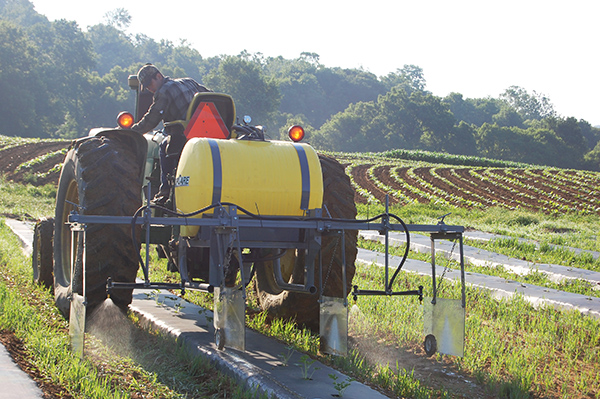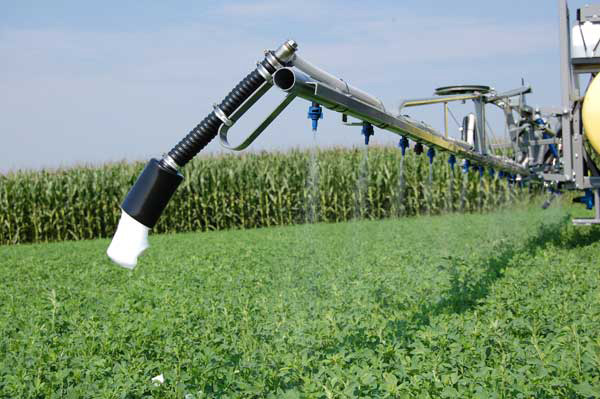 Proposed revisions to pesticide application procedures will affect public, private and commercial applicators nationwide. In August 2015, the Environmental Protection Agency proposed changes to the processes of getting those licenses.
Proposed revisions to pesticide application procedures will affect public, private and commercial applicators nationwide. In August 2015, the Environmental Protection Agency proposed changes to the processes of getting those licenses.
In many states, any farmer or landowner who plans to purchase and apply restricted use pesticides for agricultural success (on land they own or land they lease), must have a private applicator’s license.
One revision that will affect all applicators, private or commercial, is a change to the minimum age for certified and noncertified applicators. The EPA plans to set the minimum age at 18. The existing rule has no minimum age requirement.
This would be the first time the government set a nationwide minimum age.
 The proposal in regards to “worker protection standards” is perhaps the most controversial, according to Ed Crow, Pesticide Regulatory Education Specialist with Penn State University.
The proposal in regards to “worker protection standards” is perhaps the most controversial, according to Ed Crow, Pesticide Regulatory Education Specialist with Penn State University.
“That will have a real impact on private and commercial applicators, even homeowners. If you want to hire a contractor to apply pesticide on your property, you have to be certified to contract someone else to do the pesticide for you.”
Also, private and commercial applicators will have to earn certain “continuing education units” (CEUs), and pass a written exam. The EPA is proposing that one unit will require 50 minutes of instruction. That will be a change for some states. For example, Pennsylvania currently requires only 30 minutes per unit. If applicators don’t earn credits, they will have to take the exams.
Applicators will need to present identification in order to take those exams. They will have to renew certification every 3 years.
“If you want to hire a contractor to apply pesticide on your property, you have to be certified to contract someone else to do the pesticide for you.”
Commercial and private applicators will be required to take annual safety training. Noncertified applicators will also be required to have annual training on safe applications, and on protecting themselves and others from pesticide exposure. – (with exemption for those with valid Worker Protection Standard pesticide handler training, and for those who passed the commercial core exam).
The proposed revisions will affect each state differently since each state has its own procedures for certification.
For state-specific information about pesticide application, Carolyn Schroeder of the Office of Pesticide Programs, suggests these website as a resource: https://aapco.org/2015/07/28/resources-2/, https://www.epa.gov/pesticides or visit the website of your state’s agricultural extension office.
Also, following are links to individual state farm extension offices or farm service agencies where you are likely to find more information and contacts:
CONNECTICUT: https://www.extension.uconn.edu/
DELAWARE: https://www.udel.edu/canr/cooperative-extension/
GEORGIA: https://extension.uga.edu/topic-areas.html
IOWA: https://www.extension.iastate.edu/topic/food-and-environment
KENTUCKY: https://extension.ca.uky.edu/
MAINE: https://extension.umaine.edu/agriculture/
MARYLAND: https://extension.umd.edu/resources
MASSACHUSETTS: https://ag.umass.edu/resources/agriculture-resources
MICHIGAN: https://msue.anr.msu.edu/topic/info/agriculture
MINNESOTA: https://extension.umn.edu/
NEW JERSEY: https://njaes.rutgers.edu/extension/
NEW YORK: https://cals.cornell.edu/cornell-cooperative-extension/our-work/agriculture-food-systems
OHIO: https://agnr.osu.edu/
PENNSYLVANIA: https://extension.psu.edu/
VERMONT: https://ext.vt.edu/agriculture.html
VIRGINIA: https://ext.vt.edu/topics/agriculture/index.html
WISCONSIN: https://extension.wisc.edu/agriculture/

